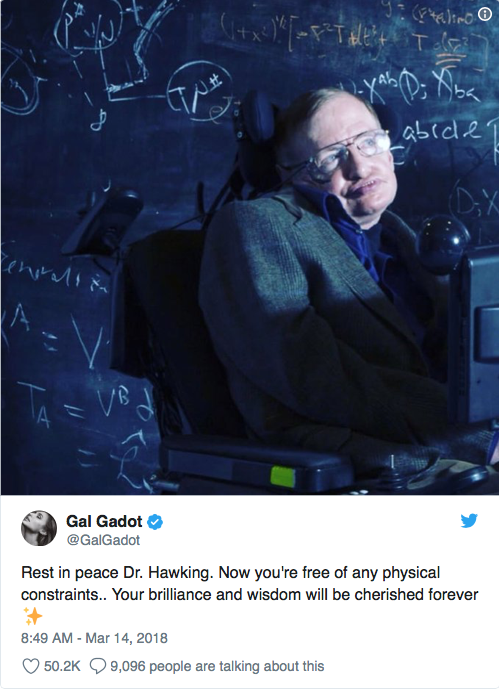 For many years I taught Tuesdays With Morrie, by Mitch Albom. It’s the story of college professor Morrie Schwartz, who in his later years, contracted Amyotrophic Lateral Sclerosis–ALS–also know as Lou Gherig’s disease. After his diagnosis, Morrie died within a few years. Morrie lost the use of his legs, his arms, and finally, the ability to breathe. The book is one of the most touching I’ve read, and all the more so for Morrie’s realistic understanding of what he, day by day, lost, and how he dealt with his decline and impending death.
For many years I taught Tuesdays With Morrie, by Mitch Albom. It’s the story of college professor Morrie Schwartz, who in his later years, contracted Amyotrophic Lateral Sclerosis–ALS–also know as Lou Gherig’s disease. After his diagnosis, Morrie died within a few years. Morrie lost the use of his legs, his arms, and finally, the ability to breathe. The book is one of the most touching I’ve read, and all the more so for Morrie’s realistic understanding of what he, day by day, lost, and how he dealt with his decline and impending death.
I was reminded of this when I discovered that actress, and former Israeli army trainer, Gal Gadot was under social justice warrior attack for daring to wish physicist Stephen Hawking peace upon his death from the same disease that claimed Morrie. Fox News reports:
Gadot, like many celebrities, paid tribute to the best-known theoretical physicist of his time after his death was announced. Hawking was 76 when he died. His body was paralyzed after he was diagnosed with amyotrophic lateral sclerosis or ALS when he was 21.
Some social media users took issue with Gadot’s tweet including the line, ‘Now you’re free of any physical constraints.’ They labeled the ‘Wonder Woman’ actress an ableist, meaning someone who discriminates against people with disabilities.
‘Horrible tweet. You are defining Stephen Hawking by his disability, something he spent his entire life [proving] was completely wrong,’ a person tweeted.
‘For the love of dog and all things holy, please don’t describe Stephen Hawking as having overcome his disability, or his disability as inability, or any number of boring, ableist tropes that take away from what an utter bada– he was and how the world was better for him in it,’ a social media user wrote.
“For the love of dog.” How clever. What a brilliant commentary on faith.
So what we’re not gonna do is talk about Stephen Hawking’s disability like it was a tragedy. Because it wasn’t. Disabilities are not tragedies. Abled people can go away,’ another person wrote.
‘I think you’re fantastic Gal but this tweet is very ableist. His physical constraints didn’t stop him from changing the world. People with disabilities don’t wish for death to be free of their challenges. We wish to be valued for what we can do, not pitied for we can’t,’ a person tweeted.
One is tempted to think these busybodies well intentioned, but their very self-righteousness and lack of insight—to say nothing of their obvious lack of reading comprehension–mitigates against good intentions. Gadot wasn’t defining Hawking, but she was certainly and kindly wishing him the benefits of a heavenly reward—or transcending this veil of sorrow and tears–and recognizing his accomplishments. Gadot was not describing him as overcoming his disability. She was referring to the Judeo-Christian tradition where upon obtaining eternal life, one leaves behind all worldly afflictions, limitations and cares, where one finds the peace that passes all understanding.
Notice too that some of Gadot’s detractors actually seem to acknowledge that ALS imposes disabilities, while others seem to deny even that, or suggest that those that suffer from tehm don’t see such suffering as unfortunate.
The ancient “mere life v. quality of life” argument is implicated here, though I’ll not try to discuss more than a fragment of its ramifications. If mere life is all that matters, one may reasonably argue ALS is not disabling, or its disabling effects don’t matter. As long is one is alive, the conditions of life are irrelevant. If this is so, the wheelchair Hawking occupied, the computer interface he used to write and “speak,” and every advanced medical intervention that allowed him to live 55 years when most that contract ALS die within five years of diagnosis are all superfluous, unnecessary, even insulting. After all, isn’t the wheelchair designer abelist? Aren’t they discriminating against Hawking by the mere thought he might want such a device? Obviously, the person that designed a device allowing Hawking to manipulate a computer with a cheek muscle did not value him for what he could do, but pitied him for what he could not, or why would they think to design such a device?
One might hold to the purity of such belief, but to do so requires ignoring realities hinted at by those attacking Gadot. Who thinks ALS anything but a tragedy, a cruel, destructive affliction? Those who suffer it? Their families? Morrie certainly didn’t think this way. Some mornings, when he awoke to find he’d been granted yet another day, he cried for what he lost, for his slow decay, then he set to work, doing what he still could to contribute, to leave something useful behind. Did Hawking think himself fortunate or merely “differently abled?” If so, I’ve never been able to find evidence of it.
Who really believes people suffering from such a horrible disease do not contemplate suicide, or perhaps ask God to take them to end not only their suffering, but to ease the burdens of their loved ones? What person of good will would want their loved ones to have to see them die by inches before their eyes? Who would want to experience it?
And if my contentions, gentle readers, are so, what does that say about me? Am I discriminating against people like Dr. Hawking and Dr. Schwartz by being truthful about human nature? Do my beliefs prevent anyone in any way handicapped from living their lives as fully as possible?
Should I ignore someone on crutches having difficulty carrying something? Should I refuse to hold open a door for someone in a wheelchair? If a friend that lost a limb and wears a prosthetic leg wants to talk about that loss and their adaptation, should I beg off, lest I somehow discriminate against them by merely acknowledging the reality they live every day?
We do none harm by recognizing their need, whatever it may be, and offering kindness. If they prefer no such help, no one is harmed, but if we don’t offer it, because we don’t care for others, or because we don’t wish to offend the perpetually offended, we are all lessened, and life becomes a little meaner, a little more uncaring, and immeasurably harder for those in genuine need.
Who is expressing sincere humanity? Gal Gadot, who has recognized Hawking’s contribution to mankind and has wished for his eternal comfort, or her ankle-biting detractors, so caught up in their self-imagined moral purity, they can’t recognize sincerely expressed kindness?
I’ve appreciated Gadot’s work as an actress. After this tweet, I appreciate her humanity. I suspect Dr. Hawking would have felt the same.




I read Gal Gadot’s tweet and was reminded of the old hymn “I’ll Fly Away.”
When the shadows of this life have gone
I’ll fly away
Like a bird from these prison walls I’ll fly
I’ll fly away
She passed on a heartfelt care for a man who suffered over 50 years with a terrible disease and was pilloried by the unfeeling left.
She is a star and so was Hawking, who lived a remarkable life in spite of the prison walls life put around him.
Dear Bill Cook:
Quite so.